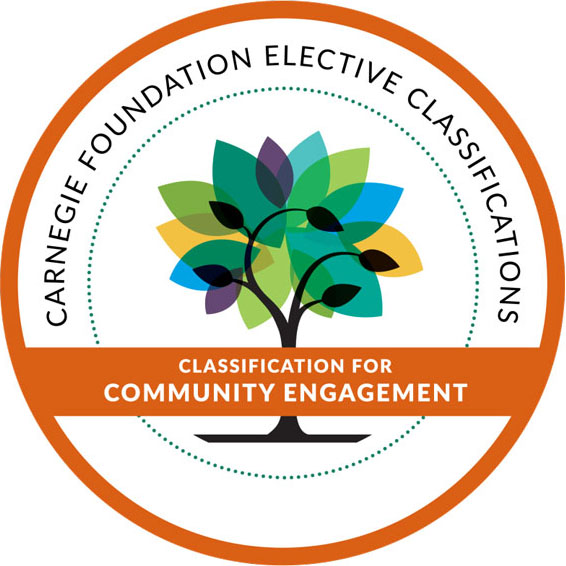About Us
100%
of Nazareth undergraduate students participate in community engagement, addressing local and global challenges
800
The Weider staff each year connects about 800 students with 70 organizations/partners for service experiences, social innovation design, changemaking resources, social justice action, and exploring jobs with impact.

Nationally Recognized
Community engagement is core to Nazareth University, recognized again in 2026 by the American Council on Education and the Carnegie Foundation for the Advancement of Teaching.
A Leader in the Field
In addition to the Carnegie Foundation, Nazareth's sophisticated, successful approach to community engagement is recognized by Washington Monthly, NASPA (the leading national association of student affairs administrators in higher education) and the President's Higher Education Community Service Honor Roll.
What We Do
We enhance students' college experience by offering a variety of community service opportunities, academic service-learning courses, and other community engagement initiatives — locally, regionally, nationally, and globally.
Nazareth is nationally recognized for leading the way for colleges engaged with the community. Nazareth's latest innovative efforts include the implementation of the Bonner Leader Scholarship Program, social innovation, changemaking, and faculty-led community-engaged learning.
What is Community Engagement?
Community engagement at Nazareth University is a form of experiential learning in which students participate in individual and/or collective actions that are designed to identify and address issues of public concern. It can be for credit or not for credit. Students “test out” concepts and theories and become agents of their own learning in transformative ways while exploring their roles in the local and global communities through reciprocal and mutually beneficial partnerships with community-based organizations.
According to The Pew Charitable Trusts:
Civic engagement can take many forms, from individual voluntarism to organizational involvement to electoral participation. It can include efforts to directly address an issue, work with others in a community to solve a problem or interact with the institutions of representative democracy. Civic engagement encompasses a range of specific activities such as working in a soup kitchen, serving on a neighborhood association, writing a letter to an elected official or voting. Indeed, an underlying principle of our approach is that an engaged citizen should have the ability, agency and opportunity to move comfortably among these various types of civic acts.
Source: Michael Delli Carpini, Director, Public Policy, The Pew Charitable Trusts.
Get Involved
The programs page outlines many opportunities for non-credit bearing civic engagement opportunities. The Credit-Bearing Community Engaged Learning page outlines opportunities that are credit-bearing engagement opportunities.
Experiential Learning
Community engagement activities are one way that students fulfill the experiential learning core requirement at Nazareth.